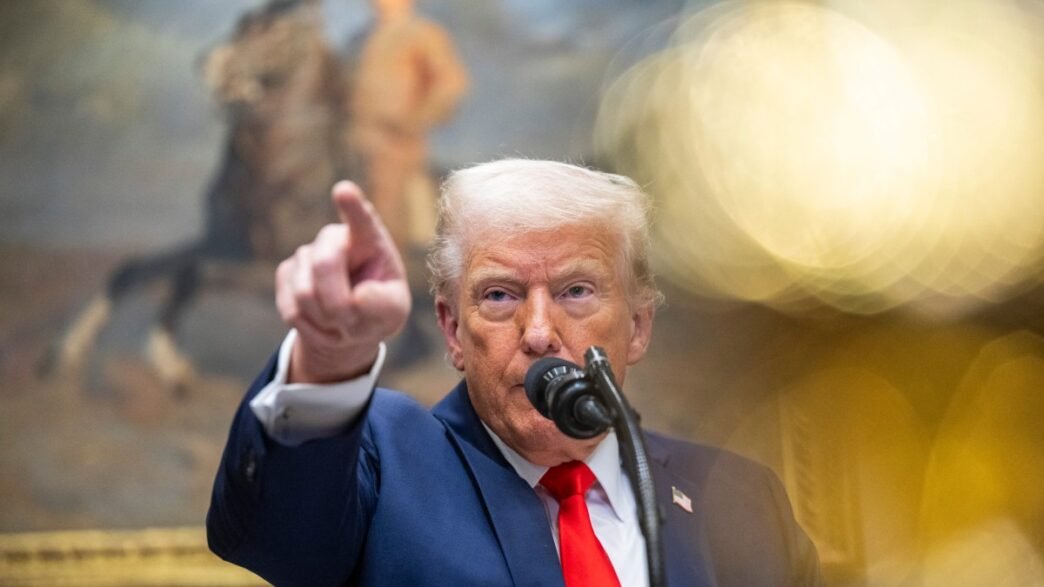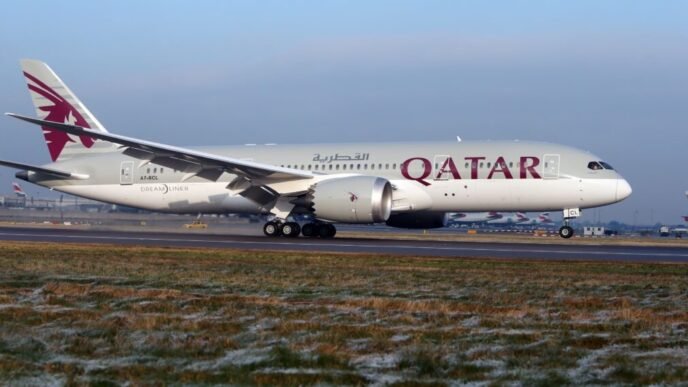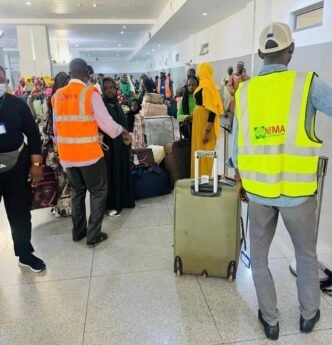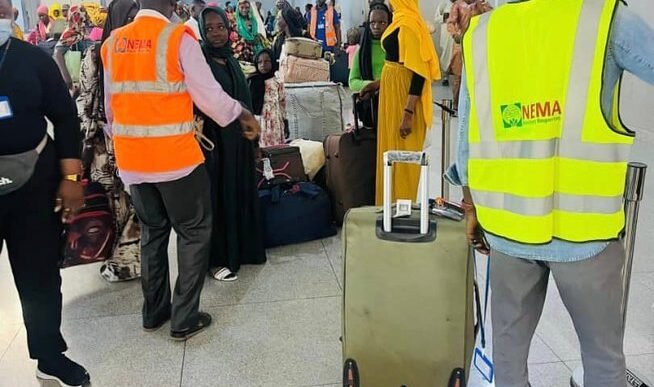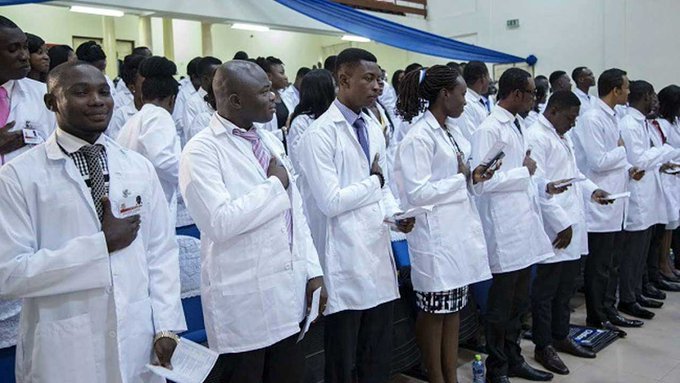In a major policy shift, the United States government has announced a new rule requiring employers who hire foreign workers under the H-1B visa program to pay a minimum annual salary of $100,000 per worker. This landmark development has sparked widespread debate across global professional communities, particularly in countries like Nigeria, where thousands of skilled workers aspire to build careers in the U.S. technology, healthcare, and engineering industries.
The H-1B visa program, which has long served as a pathway for highly skilled foreign workers to secure jobs in America, is central to the country’s workforce needs in specialized sectors. However, this new salary requirement is expected to significantly reshape the landscape of U.S. employment opportunities for Nigerian professionals and other foreign nationals.
Understanding the H-1B Visa Program
The H-1B visa is a non-immigrant work permit that allows U.S. companies to hire foreign workers in specialized occupations requiring technical expertise. Fields such as information technology, engineering, medicine, finance, and research have heavily relied on this program to fill skill gaps in the American labor market.
Traditionally, the program has attracted highly educated professionals from countries like India, China, and Nigeria. Over the years, Nigerian professionals—particularly in IT, software development, healthcare, and oil and gas engineering—have sought H-1B visas as a route to global career advancement.
Before this rule change, the minimum wage requirements for H-1B holders were based on prevailing wage levels determined by the U.S. Department of Labor, which varied depending on the location and industry. In many states, the required salaries were far lower than the newly set $100,000 benchmark.
The New $100,000 Requirement: What Has Changed?
The new rule is straightforward: employers hiring foreign professionals under the H-1B program must now guarantee a minimum annual salary of $100,000.
This policy comes as part of a broader U.S. effort to ensure that hiring foreign workers does not undercut American workers or drive down wages in critical industries. Policymakers argue that by setting a higher threshold, the program will attract only the most skilled workers while protecting U.S. citizens from wage suppression.
For Nigerian professionals and others eyeing opportunities in America, this means only those with qualifications, skills, and experience that justify such high pay will realistically stand a chance of securing sponsorship.
Why This Matters to Nigerian Professionals
Nigeria has one of the largest pools of highly skilled English-speaking professionals in Africa. In recent years, there has been a steady migration of Nigerian talent to the U.S., Canada, and Europe, driven by a combination of local economic challenges and the global demand for specialized skills.
The United States, with its vast tech ecosystem, renowned hospitals, research institutions, and multinational corporations, has been a prime destination for Nigerians seeking better professional opportunities. The new H-1B rule could reshape this trend in several ways:
- Reduced Accessibility:
Many mid-level professionals from Nigeria who previously qualified for H-1B positions with salaries between $60,000 and $80,000 may now find themselves locked out. - Stronger Competition:
Only the most experienced and highly skilled Nigerian professionals will meet the $100,000 salary requirement. This increases competition and narrows opportunities to senior-level roles. - Impact on Nigerian Graduates:
Fresh Nigerian graduates, even those with strong technical skills, may find it nearly impossible to secure H-1B sponsorship without years of experience to command six-figure salaries. - Shift to Other Destinations:
Countries like Canada, the United Kingdom, and Germany, which maintain more accessible work visa systems, may see an influx of Nigerian professionals who consider the new U.S. policy too restrictive.
Potential Benefits for Nigerians
While the policy poses challenges, it also presents unique opportunities for Nigerian professionals who can rise to the occasion.
- Higher Pay for Qualified Nigerians:
Those who meet the threshold will benefit from higher guaranteed earnings. Nigerian professionals in medicine, software engineering, and data science may find themselves well-placed to secure lucrative U.S. roles. - Improved Job Security:
With employers required to invest significantly in hiring foreign workers, companies may become more selective but also more committed to retaining skilled Nigerian employees long-term. - Global Recognition of Nigerian Talent:
This rule could indirectly highlight Nigeria’s top-tier professionals who meet the salary standard, boosting the country’s global reputation as a hub of expertise.
Voices from the Nigerian Diaspora
Reactions among Nigerians already working in the U.S. under the H-1B visa program have been mixed.
A Lagos-born software developer based in Texas noted, “While this will make it harder for new entrants, those of us already here see it as validation. It means we’re being compensated fairly and competitively.”
Conversely, a young Nigerian IT graduate currently pursuing a master’s degree in the U.S. expressed concern: “I was hoping to transition to an H-1B role after school, but I don’t know if I’ll be able to secure a job paying $100,000 right away. It feels discouraging.”
Broader Impact on U.S. Employers
The new rule is not just about foreign workers; it also carries significant implications for U.S. companies.
- Increased Hiring Costs:
Employers will now have to carefully evaluate whether bringing in foreign talent at a $100,000 minimum salary is financially sustainable. - Preference for Senior Roles:
Organizations may reserve H-1B sponsorships for senior-level positions, cutting out entry-level or mid-level hiring of foreign professionals. - Pressure on U.S. Labor Market:
While some argue this will create more opportunities for Americans, others warn it could leave gaps in industries already struggling to find qualified workers.
Implications for Nigeria’s Workforce and Economy
The rule also has ripple effects back home. Nigeria faces significant challenges in retaining its skilled workforce due to high levels of emigration, popularly referred to as the “Japa” syndrome. With U.S. opportunities potentially shrinking, the trend of mass professional migration could slow down.
However, this could also encourage:
- Retention of Skilled Workers: Professionals who no longer see the U.S. as an option might remain in Nigeria or consider other destinations.
- Growth of Local Industries: With more skilled workers staying, Nigerian companies may have access to talent previously lost to foreign migration.
- Pressure for Policy Reforms: The Nigerian government may face greater pressure to improve local working conditions, salaries, and opportunities to retain its professionals.
Alternatives for Nigerian Professionals
Given the new restrictions, Nigerian professionals seeking global opportunities may begin exploring alternative destinations with more accessible visa and salary requirements.
- Canada: With its Global Talent Stream and welcoming immigration policies, Canada remains an attractive option for Nigerian IT and healthcare professionals.
- United Kingdom: The Skilled Worker visa program continues to attract Nigerians, particularly in healthcare.
- Germany: With growing demand for IT experts and engineers, Germany offers a favorable environment for skilled migrants.
Conclusion: A Turning Point for Nigerian Talent
The introduction of the $100,000 minimum salary requirement for H-1B visa workers marks a turning point in U.S. immigration and labor policy. For Nigerian professionals, it presents both obstacles and opportunities.
While the rule raises the bar significantly, making it harder for entry- and mid-level professionals to qualify, it also ensures that those who succeed will enjoy higher pay, stronger job security, and greater recognition.
Ultimately, this policy shift underscores the need for Nigerian professionals to continuously upskill, specialize, and strategically position themselves in the global marketplace. It also calls on Nigerian leaders to create enabling environments that reduce the overreliance on foreign opportunities.
For now, Nigerian professionals eyeing the U.S. must adapt quickly to this new reality, recognizing that the path to American employment has become narrower, but for those who qualify, potentially more rewarding than ever before.


